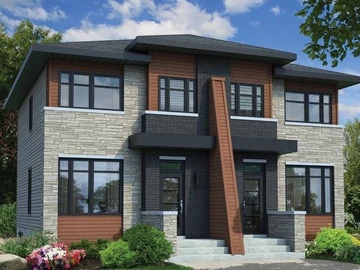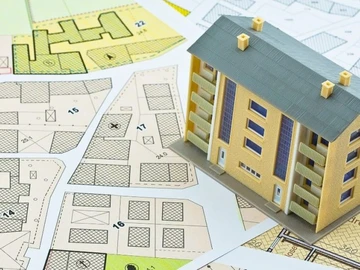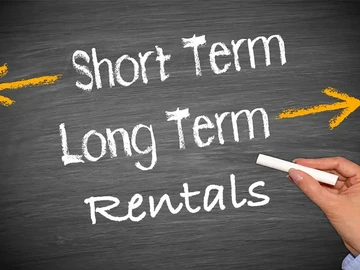Selling a house in Zimbabwe is not just about finding a buyer — it's about ensuring that all the legal paperwork is in place to transfer ownership smoothly. Whether you're listing on a marketplace like Property.co.zw or working through a real estate agent, having your documents ready can reduce the sales cycle and improve buyer trust.
In 2024, property transactions in urban Zimbabwe grew by an estimated 12.4%, according to industry data. This increase has placed a spotlight on legal compliance, particularly in high-demand areas like Borrowdale, Avondale, and Chitungwiza.
Here's a complete guide to the paperwork you need, backed by current real estate and regulatory trends.
1. Title Deed or Registered Agreement of Sale
Your Title Deed is the primary legal document that proves ownership. It must be in your name and reflect accurate property details.
- According to the Ministry of Local Government and Public Works, over 65% of urban land sales in Zimbabwe are still conducted without a title deed especially in peri-urban areas like Epworth and Cowdray Park.
- This significantly limits financing and resale opportunities.
If no deed exists, you may need a Registered Agreement of Sale (common in developer-led or high-density area sales), though this can slow the transaction.
2. National Identity & Proof of Residence
You’ll need:
- A valid National ID or passport
- Proof of residence (ZESA bill, water bill, or bank statement)
These are required by law for all conveyancing transactions. Zimbabwe's anti-money laundering guidelines, strengthened in 2023, mandate strict ID verification for all property deals over USD $5,000.
3. Rates & Utility Clearance Certificates
Before you sell, you must prove that all municipal bills are paid up.
Documents include:
- Rates Clearance Certificate from your local authority
- ZESA clearance (or equivalent for electricity)
The City of Harare reported in its 2024 municipal audit that 28% of property transfers were delayed due to unpaid rates. In high-value areas like Greystone Park and Glen Lorne, outstanding bills average over USD $2,000 per property.
4. Capital Gains Tax (CGT) Clearance from ZIMRA
You cannot transfer a property without a Capital Gains Tax clearance from the Zimbabwe Revenue Authority (ZIMRA).
- ZIMRA’s 2024 report noted that CGT revenue from property sales rose to USD $15 million, up from $11.8 million in 2023, signaling increased property activity.
- The standard CGT rate is 20%, though exemptions apply for:
- Primary residences
- Properties held for over 10 years (subject to indexation rules)
You’ll need:
- Title deed
- Purchase price and current sale price
- Seller’s ID
The processing time typically ranges from 7 to 21 working days.
5. Offer Letter or Cession Documents (High-Density Areas)
If you’re selling a house in a high-density suburb like Budiriro or Kuwadzana where formal title is pending, you’ll need:
- A valid Offer Letter or Lease Agreement
- Council approval for the cession
- A letter of no objection from the municipality
In 2024, Property.co.zw saw that 38% of Harare’s listings under USD $30,000 were cession-based properties, underscoring their importance in the entry-level housing market.
6. Spousal Consent (If Married)
If married under community of property, your spouse must legally consent to the sale regardless of whose name appears on the title.
You’ll need:
- Spousal consent form
- Marriage certificate
Failure to include spousal consent can delay transfer and even result in legal disputes. ZIEA (Zimbabwe Institute of Estate Agents) reports that 1 in 6 property disputes in 2024 involved lack of marital consent.
7. Power of Attorney (If Selling on Behalf of Someone Else)
If you're selling a house for someone based abroad (e.g., in the UK or South Africa), you’ll need a registered Power of Attorney.
According to the Zimbabwe Consulate in Johannesburg, over 1,200 Power of Attorney requests related to property sales were processed in 2024.
8. Signed Agreement of Sale
Once a buyer is secured, the transaction is formalised through a written Agreement of Sale. This is usually prepared by a lawyer or real estate agent and should be:
- Signed by both parties
- Include the agreed price
- Outline payment terms and timelines
- Serve as the basis for tax and transfer processing
In 2024, the average house in Harare took 63 days from agreement to transfer — a timeline that can be halved if paperwork is ready upfront.
Final Thoughts
Selling your house in Zimbabwe can be seamless provided all paperwork is accurate and available. With the right documents, you improve your chances of attracting serious buyers, expediting the transfer process, and avoiding legal pitfalls.
Quick Seller's Document Checklist
|
Document |
Required For |
|
Title Deed |
Proof of ownership |
|
National ID & Proof of Residence |
Identity verification |
|
Rates & Utility Clearance |
Municipal approval |
|
ZIMRA CGT Clearance |
Legal transfer of property |
|
Offer Letter (if no title) |
Council-administered properties |
|
Spousal Consent |
If married under community of property |
|
Power of Attorney |
Selling on someone’s behalf |
|
Agreement of Sale |
Contract between buyer and seller |
For more tips on selling or to list your property, visit Property.co.zw — Zimbabwe’s No. 1 Property Marketplace with over 8,000 active listings and 200+ trusted agencies.
 Continue with Facebook
Continue with Facebook
 Continue with Email
Continue with Email














